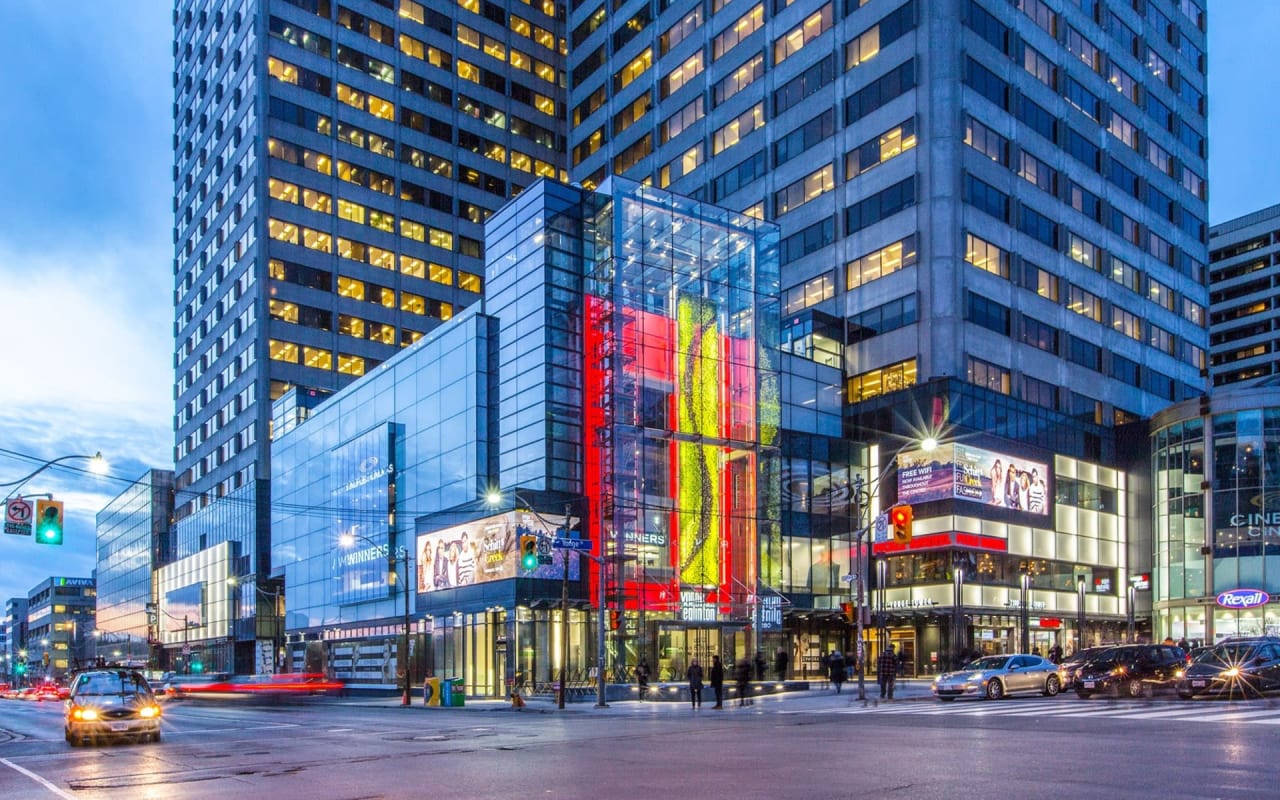For those considering a move to Canada's largest city, Toronto, the prospect can be both exhilarating and overwhelming. With its diverse neighbourhoods, rich cultural scene, and booming real estate market, there's much to explore and consider. In this comprehensive guide, we will provide valuable insights to help relocators make informed decisions about Toronto, including exploring options in Leaside real estate, understanding the city's diverse communities, and highlighting essential aspects of settling in this dynamic metropolis.
The Toronto Experience: A Snapshot
Before diving into the details of neighbourhoods and real estate, it's essential to understand what makes Toronto such an attractive destination for newcomers.
1. Economic Opportunities: Toronto is Canada's economic hub, boasting a thriving job market with opportunities across various industries, including finance, technology, healthcare, and more.
2. Diverse Culture: The city's multicultural fabric is celebrated through festivals, cuisine, and a welcoming atmosphere. Toronto is often referred to as one of the most diverse cities globally, offering a global village experience.
3. Education and Healthcare: Toronto is home to top-notch educational institutions and world-class healthcare facilities, making it an ideal place for families and individuals alike.
4. Real Estate Market: Toronto's real estate market is dynamic and competitive, with various housing options and neighbourhoods to explore, such as Leaside real estate, which we will discuss further.
1. Economic Opportunities: Toronto is Canada's economic hub, boasting a thriving job market with opportunities across various industries, including finance, technology, healthcare, and more.
2. Diverse Culture: The city's multicultural fabric is celebrated through festivals, cuisine, and a welcoming atmosphere. Toronto is often referred to as one of the most diverse cities globally, offering a global village experience.
3. Education and Healthcare: Toronto is home to top-notch educational institutions and world-class healthcare facilities, making it an ideal place for families and individuals alike.
4. Real Estate Market: Toronto's real estate market is dynamic and competitive, with various housing options and neighbourhoods to explore, such as Leaside real estate, which we will discuss further.
Exploring Toronto's Neighbourhoods
Toronto is a city of neighbourhoods, each with its own distinct character and charm. Below are some key areas to consider when relocating to Toronto:
Leaside: Suburban Oasis in the City
Located in Toronto's east end, Leaside offers a suburban oasis within the bustling metropolis. Known for its tree-lined streets and green spaces, it's a favourite among families. Leaside real estate includes an array of housing options, from spacious detached homes to modern condominiums. The neighbourhood is home to well-regarded schools like Leaside High School and is close to parks like Serena Gundy Park, making it a popular choice for those seeking a family-friendly environment.
Downtown Toronto: The Heart of the City
Living in downtown Toronto means being at the centre of it all. From iconic landmarks like the CN Tower to vibrant entertainment districts, downtown offers a dynamic urban lifestyle. Housing options range from high-rise condos to historic loft conversions. Commuting is a breeze with numerous transit options, and residents have access to world-class dining, shopping, and cultural attractions.
Midtown Toronto: The Best of Both Worlds
Midtown Toronto strikes a balance between urban convenience and suburban tranquility. Neighbourhoods like Davisville Village offer a central location with a mix of housing options, excellent schools, and proximity to both downtown and serene parks like Mount Pleasant Cemetery. It's an ideal choice for those seeking a family-oriented, central community.
East End: Danforth Village and More
The east end of Toronto, including Danforth Village, is known for its vibrant street life and strong sense of community. Housing here includes townhouses, apartments, and some detached homes, often reflecting charming architectural styles. Danforth Avenue is the neighbourhood's heart, teeming with local shops and dining options. It's perfect for urban dwellers seeking a lively, welcoming atmosphere.
Corktown: Historic Meets Modern
Corktown, situated just east of downtown, offers a blend of historic charm and modern living. Historic red-brick buildings and cobblestone streets coexist with contemporary condos and loft-style apartments. The nearby Distillery District adds to its cultural appeal, making it an attractive choice for arts and culture enthusiasts.
Uptown Toronto: Elegance and Prestige
For those seeking elegance and prestige, uptown Toronto's Forest Hill neighbourhood is the epitome of upscale living. Stately mansions, upscale boutiques, and prestigious private schools define this affluent area. The nearby St. Clair West subway station provides easy access to downtown, making it an ideal choice for professionals and families alike.
Essential Relocation Tips
As you prepare for your move to Toronto, keep these essential relocation tips in mind:
1. Financial Planning: Understand the Cost of Living
Relocating to Toronto requires a clear understanding of the city's cost of living. It's essential to evaluate your financial situation and create a budget to ensure a smooth transition. Consider these factors:
- Housing Costs: Research the cost of housing in your desired neighbourhood, whether it's Leaside real estate or other areas. Keep in mind that Toronto's real estate market can be competitive, and prices can vary significantly by neighbourhood.
- Transportation Expenses: Toronto offers various transportation options, including public transit, driving, and cycling. Determine your commuting needs and budget for transportation costs accordingly.
- Daily Expenses: Make a list of your daily expenses, including groceries, utilities, and entertainment. Toronto's diverse dining scene can be both a delight and an expense, so plan your dining-out budget accordingly.
2. Housing Search: Start Early and Consider Professional Help
Starting your housing search well in advance is crucial, especially in Toronto's competitive real estate market. If you're interested in Leaside real estate or specific neighbourhoods, begin your search early to increase your chances of finding the right property. Consider these steps:
-
Online Research: Explore online real estate listings, websites, and social media groups dedicated to Toronto housing to gain insights into available properties.
-
Local Real Estate Agents: Consider working with a local real estate agent like Giulia Gallina who has a deep understanding of Toronto's real estate market. They can help you navigate listings, negotiate offers, and provide valuable insights.
-
Open Houses: Attend open houses in your chosen neighbourhoods to get a feel for different properties and neighbourhood vibes.
3. Transportation: Familiarize Yourself with Toronto's Transit System
Toronto boasts an extensive public transportation system, which is often the preferred choice for commuting within the city. Understanding the transit system is crucial:
-
Subway and Streetcars: Toronto has a comprehensive subway system along with streetcars that cover various areas. Familiarize yourself with routes, schedules, and fare information.
-
Buses: Buses complement the subway and streetcars, offering broader coverage throughout the city. Learn about bus routes and schedules for convenient transportation options.
-
Cycling: Toronto is becoming increasingly bike-friendly, with dedicated bike lanes and bike-sharing programs. If you're a cyclist, explore bike routes and safety guidelines.
-
Driving: If you plan to drive in Toronto, ensure you understand local traffic rules, parking regulations, and the layout of major roads and highways.
4. Healthcare: Register for Ontario's Healthcare System
Access to healthcare is crucial when relocating to Toronto from out of the country. Ontario's healthcare system, known as OHIP (Ontario Health Insurance Plan), provides coverage for most medical services. Here's what you need to know:
-
OHIP Eligibility: Determine your eligibility for OHIP based on your immigration status. Ensure you have the necessary documentation to apply for coverage.
-
Healthcare Facilities: Research nearby hospitals, clinics, and healthcare providers in your chosen neighbourhood to have easy access to medical services.
5. Education: Explore School Options
If you have school-age children, it's essential to explore educational options and understand the registration process in Toronto:
-
Public Schools: Toronto's public school system is operated by the Toronto District School Board (TDSB). Research TDSB schools in your neighbourhood and their admission procedures.
-
Catholic Schools: The Toronto Catholic District School Board (TCDSB) manages Catholic schools in the city. If you prefer Catholic education, explore TCDSB schools and enrollment requirements.
-
Private Schools: Toronto also offers a range of private schools with various educational philosophies. Research private school options, admission criteria, and tuition fees if applicable.
6. Local Services: Set Up Essential Services
Before your move, plan to set up essential services to ensure a smooth transition:
-
Utilities: Contact utility providers for services such as electricity, gas, water, and internet. Arrange for service transfers or new installations as needed.
-
Banking: Open a local bank account if you don't already have one to manage your finances conveniently.
-
Postal Service: Update your mailing address with Canada Post and consider setting up mail forwarding from your previous address.
Begin Your Toronto Real Estate Journey
By addressing these essential relocation tips, you'll be well-prepared for a successful move to Toronto. Should you require expert guidance in navigating Toronto's real estate market or any aspect of your relocation, remember to contact Giulia Gallina, a trusted real estate professional who can assist you in finding your ideal home in Toronto.















